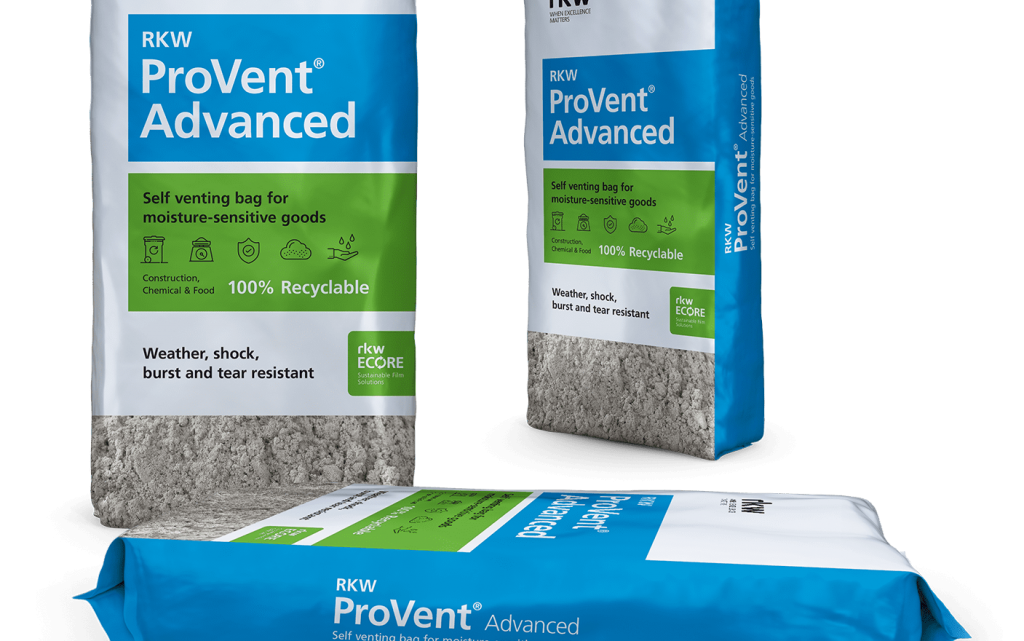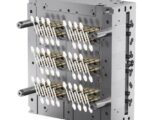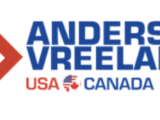
RKW and Nordson are taking steps to prepare for the future by enabling producers to process blown film with high recycled content
October 21, 2023Sustainability is becoming increasingly important for plastic products, and this message has been
reinforced by both the EU and state governments through new laws, regulations, and charges.
Virgin material used in packaging products will be subject to country-specific fees ranging from
0.23 to 0.45 Euros per kilogram of packaging material. These changes in EU packaging laws are
aimed at promoting the circular economy in the plastics industry.
The new regulations pose a significant hurdle for film producers. They must rapidly modify their
film production to accommodate a large volume of recyclable materials.
However, this challenge can be advantageous for those who are well-prepared. At RKW in Echte,
Germany, the use of recyclable materials has been a topic of discussion for quite some time. “We
have been using recyclables in our films for many years,” explains Thomas Steffen, an Application
Engineer at RKW. “These films are subsequently used in products where quality standards can be
met through recycled material.”
Efficient filtration is crucial when using recyclates to maintain the quality of the end product. Melt
filters have been utilized in blown film lines for many years, but in the past, these filters were
mostly discontinuous, requiring the line to shut down for a screen change. “In processes with
clean virgin material, this is not a problem,” says Stefan Wöstmann, process engineer at Nordson
BKG, “the filters here take on a purely protective function and ensure that no loose screws from
the material feed or other transport contaminants get into the process. But the degree of
contamination is so low that screen changes are rarely necessary.”
Compensating Material Quality Differences
By using more recycled material, the
process needs to handle an additional
component with much impact on the
final product. „The quality of the
recyclate containing dirt particles
fluctuates significantly. Thus, we cannot
guarantee that the quality of the final
product is always the same. We needed
to enable ourselves to react flexibly to
varying levels of contamination, „says
Sven Pastrik, Manager of Extrusion at
RKW in Echte.
As a first step, continuous screen
changers were implemented. These
filters allow operators to change screens
without interrupting production and
adjust screen fineness for different
production batches based on quality requirements. “As a result, we have significantly fewer
machine downtimes, and the productivity of our plants has increased significantly,” reports Sven
Pastrik. “We can compensate quality differences in the material very well and process high
proportions of recyclate, for example, in our FFS bag production.”
The use of recyclate in RKW ProVent plastic bags, commonly
used in the construction and chemical industry for packaging
powdery goods, is becoming more prevalent and continues to
increase. “Here, it is essential that the protective and barrier
properties are guaranteed and that no dust, dirt, or moisture can
penetrate,” explains Thomas Steffen. “We inspect our films with
optical systems before further processing. But for us, finding
defects is not a strategy; the goal is to prevent them altogether.
We knew that the proportion of recycled material would keep
increasing and that we would have to redefine the filtration
process when designing a new 5-layer line.”
The goal was a system in which high-quality films could be
produced in a continuous, automated process. “We needed a plant
concept with fast setup and changeover times. We don’t want to
deal with screen changes and thus line downtimes often and for a
long time, but rather ensure an extrusion process that is as
uninterrupted as possible.”
RKW had a positive experience with Nordson® BKG® screen changers, leading them to approach
the filter manufacturer again. Their new five-layer plant is now equipped with continuous BKG
screen changers and has been running successfully since 2021. “We are very satisfied with the
performance of the system. Thanks to continuous filtration, we produce high-quality films with
high recycled content in an uninterrupted process and can cover a wide application window,”
explains Sven Pastrik.
At RKW and Nordson, they were certain that the development must go further. “The use of
recyclates will continue to increase in the future,” explains Stefan Wöstmann. “The EU’s Green
Deal and national packaging laws are massively increasing the pressure and forcing system – and
component manufacturers – to act.”
The Solution: An Innovative Backflush Screen Changer
To expand the application window and process higher proportions of recyclate and prospectively
even highly contaminated materials, e.g., from the yellow bag, without compromising quality, a
screen changer with backflush function has now come into play. “We are already seeing that the
backflush technology enables the use of recyclate from the PCR area,” explains Sven Pastrik.”
“Melt filters without a backflush function reach their limits when processing recycled material. The
degree of contamination is high, and the screens become clogged quickly,” explains Stefan
Wöstmann. “Screens are expensive, and changing them is time-consuming. Backflushing
repeatedly clears the screens of contaminants and deposits, so manufacturers need fewer filter
elements, and operators have to change screens less often.”

